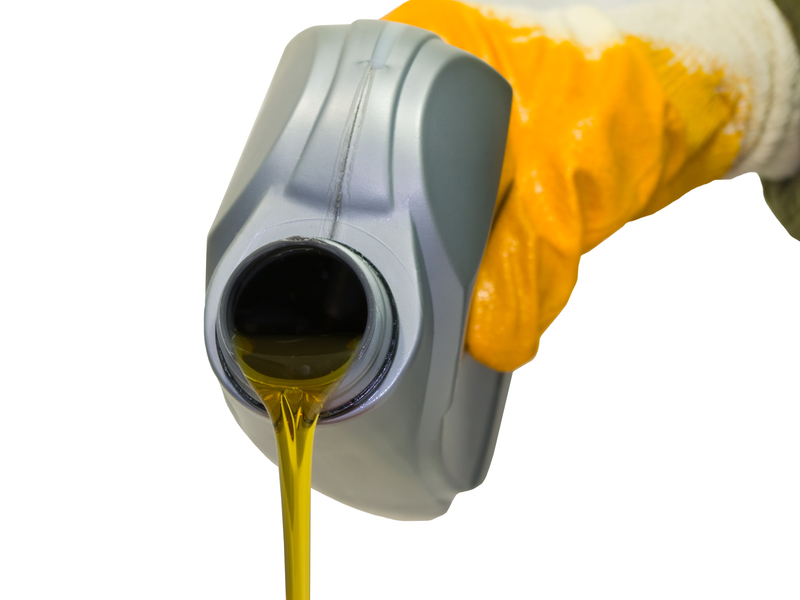Explore Hassle-Free Plant Pot Disposal: The Complete Guide
Have you accumulated a pile of empty plant pots and are now wondering what to do with them? If you care about sustainability and want practical solutions, you're in the right place. This article **explores hassle-free plant pot disposal**, providing eco-friendly options, recycling tips, and creative ideas to give your pots a second life.
Why Plant Pot Disposal Matters
Plant containers, whether plastic, ceramic, or terracotta, commonly accumulate in homes and gardens over time. Understanding the importance of responsible plant pot disposal is crucial for minimizing environmental impact. Pots discarded improperly may end up in landfills, contributing to plastic pollution or unnecessary waste.
- Plastics can take centuries to decompose, leaching chemicals into the environment.
- Ceramics and clay do not biodegrade and take up valuable landfill space.
- Responsible disposal preserves resources and promotes sustainable gardening practices.

Types of Plant Pots and Their Disposal Challenges
To dispose of plant pots hassle-free, it helps to identify the materials involved:
- Plastic Plant Pots: Lightweight, popular, but often non-biodegradable and challenging to recycle via curbside programs.
- Ceramic and Terracotta Pots: Durable and attractive but heavy and rarely collected for recycling.
- Biodegradable Pots: Made from coconut fiber, peat, wood pulp, or compostable plastics; these break down naturally with proper disposal.
Each type requires a unique disposal or recycling strategy, and choosing the right approach will help minimize environmental harm.
Hassle-Free Plant Pot Disposal Solutions
1. Reuse: Give Pots a Second Life
Before considering disposal, ask yourself if your plant pots can be reused. Reusing is not only the simplest but often the most environmentally sound option. Here are inspiring ideas:
- Replant. Use old pots for seedlings, new plants, or as decorative containers for herbs and flowers.
- Organize. Use pots for organizing tools, garden tags, or supplies in your shed or garage.
- Crafts. Paint, mosaic, or embellish old pots for use as unique indoor planters or art projects.
- Support neighbors or schools. Donate excess pots to community centers, schools, or gardening clubs, where they'll be gratefully reused.
- Share via 'Freecycle.' Online free sharing communities welcome giveaways of plant pots for other gardeners to claim.
2. Recycle: Sustainable Plant Pot Disposal
If reusing isn't possible, recycling is the next best option for most plastic plant pots. However, recycling rules vary by location and pot material, so it's essential to follow local guidelines.
How to Recycle Plastic Plant Pots
- Check Pot Type. Look for a recycling symbol on the bottom (often numbers 2, 5, or 6). These are typically recyclable, but always confirm with your municipal recycling program.
- Clean Thoroughly. Remove soil, roots, and labels. Dirty pots are often rejected by recyclers.
- Drop-off Points. Many garden centers or nurseries have plant pot recycling schemes.
- Municipal Centers. Local council recycling centers may accept plant pots, especially plastics. Double-check their accepted items before visiting.
Note: Black plastic pots are particularly challenging to recycle, as sorting machines struggle to detect them. Some specialized nurseries or recycling initiatives accept these, but others recommend reusing whenever possible.
Can You Recycle Ceramic or Terracotta Pots?
Unfortunately, most municipal programs do not recycle ceramics or terracotta due to high firing temperatures and impurity risks. Instead:
- Break them up for drainage in plant beds or pots.
- Use pieces as mulch to suppress weeds or retain soil moisture.
- Repurpose for garden art or mosaics.
3. Compostable Plant Pots
Biodegradable plant pots present a truly hassle-free disposal method if made from peat, coir, or other plant-based fibers. These can:
- Be planted directly into the ground, where roots grow through, and the pot decomposes.
- Break down in a home compost system with proper airflow and moisture.
Warning: Only compost pots labeled as home-compostable. Some bioplastics require industrial composting and do not break down in residential systems.
4. Donation: Community-based Pot Disposal
Many non-profits, community gardens, horticultural therapy programs, or schools will accept donated plant pots in good condition. Contact local organizations--your unwanted pots might have a new home and further the cause of gardening education and food growing.
- Reach out to community allotments or gardening clubs.
- Ask local nurseries if they'll accept pots for reuse or repurposing.
- Check with libraries, botanical gardens, or local charities.
Creative and Sustainable Ways to Repurpose Plant Pots
Sometimes, hassle-free plant pot disposal can mean transforming pots into new, useful items around the home or garden. Here are fun and sustainable ideas:
- Bird Feeders: Small plastic pots can hang upside down to create simple bird feeders.
- Mini Greenhouses: Larger clear pots make excellent humidity domes for seed starting.
- Pet Bowl Holders: Securely position ceramic pots as stable bases for animal bowls.
- Outdoor Lighting: Place solar lights in pots to create attractive night-time garden features.
- Holiday Decor: Paint and stack pots for festive figures--think snowmen or Easter bunnies!
Common Questions About Hassle-Free Plant Pot Disposal
Can you put plant pots in your curbside recycling?
*It depends!* Not all curbside recycling programs accept plant pots, so it's important to visit your municipality's website or call for guidelines. Most commonly accepted plastics are types #2 (HDPE) and #5 (PP).
Where do you dispose of terracotta pots?
Because terracotta doesn't biodegrade, don't throw it in the trash if avoidable. Crush and use it for garden drainage or decorative mulch, or donate intact pots to local gardens or charity shops.
Are black plastic pots recyclable?
These are difficult to recycle due to color, which sorting systems cannot readily detect. Ask nurseries or recycling centers if they have special programs, or prefer to reuse black pots as much as possible.
What about nursery pot take-back programs?
Many large garden retailers and nurseries offer plant pot recycling or take-back bins. These programs give plastic pots another life and divert them from landfills. Call before visiting to confirm acceptance rules and which materials are allowed.
Tips for Hassle-Free Plant Pot Organization and Disposal
- Sort pots by material--plastic, ceramic, biodegradable--to streamline decision-making about reusing, recycling, composting, or donating.
- Clean pots thoroughly. Remove dirt, roots, and labels for easier acceptance at recycling, donation, or reuse points.
- Store in a dry area to prevent growth of mold or pests while waiting for disposal or reuse opportunities.
- Label and stack pots by size and type for easy identification by potential takers (neighbors, friends, garden clubs).
- Set a regular spring cleaning habit for extra garden containers.
Eco-Friendly Alternatives to Traditional Plant Pots
If you're ready to reduce future waste, consider these eco-friendly planting container options:
- Peat-free fiber pots: Made from wood pulp or fibers, these break down naturally in the garden or compost heap.
- Coir pots: Coconut husk-based pots offer supportive root growth and full biodegradability.
- Paper pots: DIY pots made from old newspapers or recycled paper are perfect for seedlings and compost easily.
- Reusable grow bags: Fabric grow bags are lightweight, durable for multiple seasons, and easy to store.
- Repurposed containers: Reusing items such as old buckets, kitchenware, or baskets for planting can cut down on new pot purchasing.

Best Practices to Minimize Pot Waste in the Future
- Choose biodegradable or compostable pots where possible.
- Buy larger pots to accommodate future plant growth, reducing the need for repotting.
- Participate in local plant pot swap or exchange events.
- Return pots to nurseries offering recycling or take-back programs.
- Encourage friends and family to choose sustainable options and share this knowledge.
Conclusion: Make Plant Pot Disposal Hassle-Free and Sustainable
Disposing of plant pots doesn't have to be complicated or bad for the planet. By prioritizing reuse, seeking out recycling options for plastics, donating what you can, and creatively repurposing containers, you can achieve **hassle-free plant pot disposal** with minimal waste. Remember to check your local guidelines, seek out nursery recycling schemes, and always consider whether pots can fulfill another practical or decorative purpose.
By making mindful choices today, you contribute to a greener, cleaner tomorrow--both in your garden and across your community. Start with these steps, and enjoy a clutter-free, sustainable gardening journey!
Additional Resources for Responsible Pot Disposal
- Earth911: Local Recycling Search
- Royal Horticultural Society: Recycling Plant Pots
- Garden Organic UK: Compostable Pots and Garden Waste
For more tips on sustainable gardening and easy disposal solutions, bookmark our guide and share it with fellow gardeners!